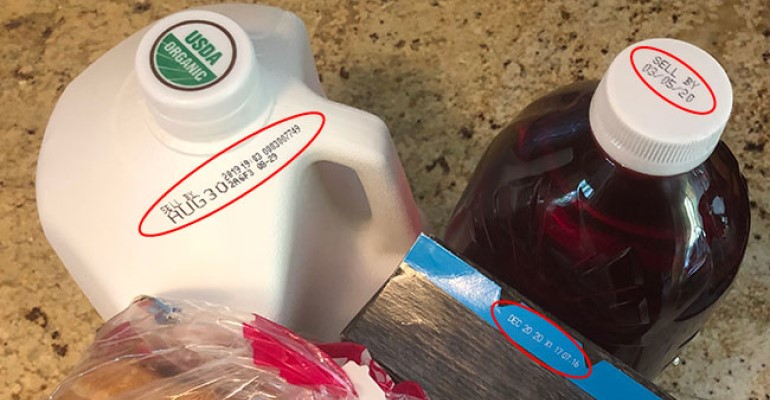Significant amounts of food waste and subsequent emissions result from consumer confusion.

Food date labeling is a significant source of consumer confusion and, subsequently, food waste, according to a new report from the Government Accountability Office (GAO) in response to a request for study Reps. Chellie Pingree (D., Maine) and Rosa DeLauro (D., Conn.) made in October 2017.
Manufacturers use a variety of labels, such as "best by" or "enjoy by," to show how long food will have the best taste. However, consumers may falsely believe that these are expiration labels and throw out food that is still safe to eat, GAO stated.
States regulate date labels for some foods. The U.S. Department of Agriculture and the Food & Drug Administration are educating consumers about date labels but do not regulate them. GAO recommended improved federal coordination with state and local governments on these labels.
Pingree praised the report, titled “Date Labels on Packaged Foods: USDA & FDA Could Take Additional Steps to Reduce Consumer Confusion,” which recommended that agencies and governments standardize food date labels.
The report calls for coordination between federal agencies and other stakeholders such as state, local and tribal governments on actions related to date labels. GAO also acknowledged that USDA and FDA share oversight of almost the entire food supply but don't regulate most date labels (besides infant formula) and are not required to do so by federal law.
The report notes that 40% of the food produced in the U.S. is wasted annually. “Until we have a federal law that actually standardizes date labeling across all markets, we will not see a significant reduction in consumer confusion or food waste greenhouse gas emissions,” Pingree said. “All stakeholders — local, state, federal or private sector — must work collaboratively to set and enforce clear labeling standards to reduce food waste.”
Last month, the Intergovernmental Panel on Climate Change (IPCC) — the U.N. body for assessing the science related to climate change — released a report outlining the pressures of climate change on land and agriculture. IPCC found that around 8-10% of greenhouse gas emissions are related to food loss from harvest, production or consumer waste, underscoring the need for the federal government to consider all innovative solutions in pursuit of curbing food waste.
Pingree and Rep. Dan Newhouse (R., Wash.) recently reintroduced the Food Date Labeling Act, a bipartisan bill designed to end consumer confusion about food date labeling and ensure that Americans do not throw out perfectly good food. Studies have shown that Americans are confused by food date labels, resulting in a significant amount of edible food ending up in landfills.
At present, there are no federal regulations related to date labels on food products, aside from infant formula. Date labeling regulations are left up to states, which means consumers are left trying to sort out a patchwork of confounding terms. “Sell by,” “use by,” “freshest on” and “expires on” are just a few of the phrases currently being used on food products. H.R. 3981 would reduce food waste by establishing an easily understood food date labeling system.
Pingree launched and currently co-chairs Congress’s first-ever Bipartisan Food Recovery Caucus. She sits on the House Appropriations Committee and the House Agriculture Committee, where she has helped shepherd through programs and funding to reduce food waste. The 2018 farm bill included her provisions to create the first full-time food loss and waste liaison at USDA, a composting and food waste reduction pilot program, as well as the Local Agriculture Market Program to reduce on-farm waste.
About the Author(s)
You May Also Like




.png?width=300&auto=webp&quality=80&disable=upscale)
